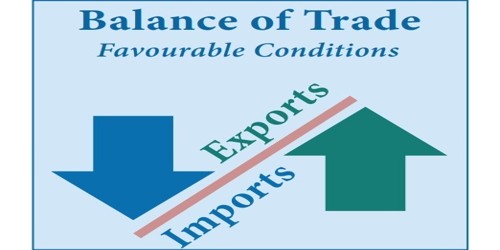
When it comes to financial planning, many people focus on savings accounts, retirement funds, and life insurance. However, one critical aspect that often goes overlooked is disability insurance. Disability insurance plays a vital role in ensuring your financial security in the event that you become unable to work due to illness or injury.
Understanding Disability Insurance
What Is Disability Insurance?
Disability insurance is a type of insurance designed to provide income replacement for individuals who are unable to work due to a disabling condition. This insurance can help cover everyday living expenses, such as rent or mortgage payments, utility bills, and medical costs during a period of disability.
Types of Disability Insurance
Short-Term Disability Insurance: This type of insurance typically covers a portion of your income for a short period, usually ranging from a few weeks to six months. It is often offered as part of employee benefits and can help bridge the gap before long-term disability kicks in.
Long-Term Disability Insurance: Long-term disability insurance provides income replacement for an extended period, sometimes until retirement age. This type of policy is crucial for individuals with fewer savings, as it helps protect against the loss of income for many years.
Guaranteed Issue Disability Insurance: This type of insurance is often available to individuals who may not qualify for standard policies due to pre-existing medical conditions. While premiums may be higher, guaranteed issue policies provide coverage without the need for medical underwriting.
Own-Occupation vs. Any-Occupation: Some disability policies vary based on how they define disability. An "own-occupation" policy pays benefits if you cannot perform your specific job, whereas an "any-occupation" policy pays benefits only if you cannot work in any capacity.
The Importance of Disability Insurance

1. Protecting Your Income
Your ability to earn an income is often your most valuable asset. If you were to become disabled and unable to work, how would you continue to pay your bills, mortgage, and other essential expenses? Disability insurance acts as a safety net, providing a source of income when you need it most. According to studies, roughly one in four people aged twenty-year-olds will experience a disability before they retire, highlighting the need for adequate coverage.
2. Supporting Long-Term Financial Goals
Disability can derail your long-term financial goals, such as saving for retirement or funding your children’s education. If you cannot earn an income, your ability to contribute to savings accounts diminishes. Disability insurance can help maintain your financial trajectory, allowing you to continue saving for your future and your family's well-being.
3. Avoiding Debt Accumulation
Without income, many individuals may resort to using credit cards or loans to cover necessary expenses. This accumulation of debt can have lasting effects on your financial health, making it difficult to recover once you return to work. Disability insurance provides financial stability during a difficult time, helping you avoid falling into debt.
4. Covering Medical Expenses
While health insurance covers many medical costs, it may not cover all expenses related to a disability. With disability insurance, you can address any related treatment costs, rehabilitation, or necessary adjustments to your home or vehicle without jeopardizing your financial situation.
5. Enhancing Employer Benefits
Many employers offer some form of disability insurance as part of their employee benefits packages. However, these policies may not provide sufficient coverage for all employees. Purchasing supplemental disability insurance can fill the gaps in employer-provided coverage, ensuring you have adequate protection.
Common Misconceptions About Disability Insurance
1. "I Do Not Need Disability Insurance Because I Am Healthy"
Many people believe that only those with health issues require disability insurance. However, disabilities can arise from accidents, severe illnesses, or even mental health issues. Young and healthy individuals can become disabled unexpectedly, making insurance a wise choice regardless of current health.
2. "My Employer’s Policy Is Enough"
While many employers offer disability insurance, the coverage may be inadequate. Employee policies may only cover a portion of your salary or have short benefit periods. Reviewing the terms of your employer-sponsored policy and considering additional coverage is crucial.
3. "Disability Insurance Is Too Expensive"
The cost of disability insurance can vary depending on age, occupation, health, and selected benefits. While it may seem like an added expense, the potential financial protection it offers outweighs the premiums. Furthermore, many providers offer customizable options to find a plan that fits your budget.
4. "Disability Insurance Only Covers Injuries"
Disability insurance typically covers a range of conditions beyond physical injuries, including chronic illnesses and mental health disorders. Conditions like anxiety, depression, and autoimmune diseases can all result in disabilities that prevent individuals from working.
How to Choose the Right Disability Insurance Policy

1. Assess Your Financial Needs
Start by evaluating your current finances and expenses. Consider how much income you need to maintain your standard of living and cover your essential expenses, such as housing, food, and medical costs. This assessment helps you determine the appropriate level of coverage necessary in case of disability.
2. Understand Policy Options
Once you assess your financial needs, familiarize yourself with the different types of disability insurance available. Consider whether you require short-term or long-term coverage, and understand the differences between "own-occupation" and "any-occupation" policies.
3. Compare Providers and Policies
Shop around to compare various insurance providers and their policies. Look for reputable companies with positive reviews and a history of reliable claims handling. Pay attention to the policy terms, including benefit amounts, waiting periods, and duration of benefits.
4. Read the Fine Print
Carefully read the policy's terms and conditions. Be aware of any exclusions or limitations that may affect your payout in the event of a claim. Understanding the fine print ensures you are fully informed about what is and is not covered.
5. Consult a Professional
If you feel overwhelmed by the process, consider consulting an insurance agent or a financial advisor. They can help you navigate the complexities of disability insurance, identify the best options for your needs, and provide valuable insights into the overall financial planning process.
The Impact of Disability Insurance on Overall Financial Security
1. Integration with Other Insurance Policies
Disability insurance should be viewed as part of your overall financial security strategy. It complements other policies such as health, life, and long-term care insurance. Together, these policies provide a comprehensive safety net that protects you and your family from various risks.
2. Enhancing Retirement Planning
Long-term financial security involves planned retirement savings. Disability insurance is crucial for ensuring that an unforeseen disability does not derail your retirement aspirations. With the right coverage, you can continue to save for your future, even in the face of adversity.
3. Maintaining Family Stability
In times of difficulty, the financial security of your family is paramount. Disability insurance can help maintain stability during challenging periods, ensuring that your family can continue to meet their everyday needs without significant disruption.
4. Encouraging a Safety Net Mindset
Choosing to invest in disability insurance fosters a broader mindset around risk management and financial preparedness. It encourages individuals to consider their complete financial picture and health status, prompting discussions about savings, investments, and contingency planning.
Common Scenarios Where Disability Insurance Proves Essential

1. Sudden Illness
Imagine a situation where you are diagnosed with a severe illness that forces you to take extended leave from work. Disability insurance provides essential income during this period, allowing you to focus on your recovery without the added stress of financial instability.
2. Accidental Injuries
Accidents can happen at any time. From slips and falls to car accidents, the potential for temporary or permanent disability is significant. Disability insurance ensures that you receive income replacement when you need it most, regardless of how the injury occurred.
3. Chronic Conditions
Many chronic health conditions, such as arthritis or multiple sclerosis, can lead to disabilities that affect your ability to work. With disability insurance, you have financial protection to manage your household expenses while dealing with medical treatment and rehabilitation.
4. Mental Health Disorders
Mental health issues are increasingly recognized as valid reasons for disability. Conditions such as depression, anxiety, or PTSD can significantly impact a person's ability to work. Disability insurance acknowledges these challenges by providing income support during recovery.
Conclusion
Disability insurance is a crucial component of a robust financial security plan. It protects your most valuable asset — your ability to work and earn an income. By understanding the various types of policies, recognizing the importance of coverage, and choosing the right plan, you can safeguard your financial future against the unexpected challenges life may throw your way.
The risks of becoming disabled are greater than many realize, and the consequences can be devastating without the proper protection. Disability insurance not only provides critical income replacement but also supports your long-term financial goals, protects your family's stability, and offers peace of mind. As you consider your financial planning strategy, do not overlook the vital role that disability insurance can play in securing your financial future.








